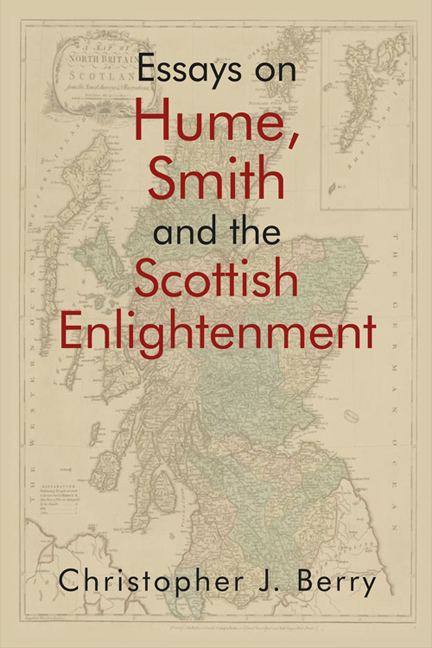Introduction to Part I
Published online by Cambridge University Press: 06 May 2021
Summary
The seven chapters in this first part of the book here reproduce material that is not explicitly devoted to either Smith or Hume. To some extent that is misleading. I have written extensively on the Scottish Enlightenment across a wide range of thinkers and topics but that discussion is found in my two synoptic volumes (Berry 1997, 2013). The consequence is that this part does not deal in depth with, for example, Millar and Kames (though Kames is more than a passing presence in Chapter 6). The thinker who does figure prominently in Part I is James Dunbar, for the reasons outlined in Chapter 1. The essays here cover a range of subjects but they complement, and provide some intellectual background, for themes in Parts II and III, such as Hume on climate and Smith on language. In addition, the acceptance of human sociality as a major premise in Hume and Smith is foregrounded in a couple of these essays. A new essay (Chapter 8) does discuss Hume and Smith at some length, but aims to place their argument into the more general context of a recurrent theme in this volume as a whole, namely the shift in Scottish thought away from a focus on ‘the political’.
I have never written an essay that seeks to encapsulate my considered overview of the Scottish Enlightenment. In the conclusion to Chapter 1, I put forward what I there identified as the ‘Berry line’ and this gestures to such a reflective overview. I am content to let those paragraphs, along with the collected essays across this volume and my books, serve as an interpretation of the Scottish Enlightenment.
- Type
- Chapter
- Information
- Publisher: Edinburgh University PressPrint publication year: 2018



